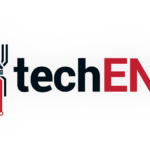Online learning has become the modus operandi for a majority of learning institutions amidst the current pandemic. However, the method of learning isn’t new. Companies such as Coursera have been pushing the boundaries of online learning as early as 2012. The company has established partnerships with leading universities such as the Massachusetts Institute of Technology (MIT) in the U.S. and even the National University of Singapore (NUS) closer to home. They even work with companies such as Google to develop up-to-date, industry relevant courses.

To help deal with the current educational climate, Coursera has been working closely with education institutions including Malaysian ones such as BAC Education Group who owns BAC College and IACT College. One of the many efforts that they have been undertaking is their ‘Coursera for Campus’ program which allows access to students from partner institutions. In light of the pandemic and the unfamiliar education circumstances, the company is introducing free access to students from partner institutions. The announcement comes as an extension of their global Campus Response Initiative announced in March.
The new Coursera for Campus will be offered in three Plans: Student, Basic and Institution. The first is catered to students offering unlimited access to guided projects for hands-on learning and one course on a yearly basis. The basic plan provides institutions with 20,000 free student licenses (student plan) while the Institution plan provides unlimited access to both guided projects and course enrollments. It also provides universities the capability to manage for-credit online learning programs.

In addition to access to over 4,200 ready-made online courses, Coursera is also enabling faculties to build custom courses and assessments using its platform. The platform utilizes things like bite-sized videos, in-browser assignments and guided projects. It is also able to support online learning experiences when it comes to high stakes exams with online proctoring and also assignments with plagiarism prevention measures. It’s also optimised for low data consumption and offline learning.






